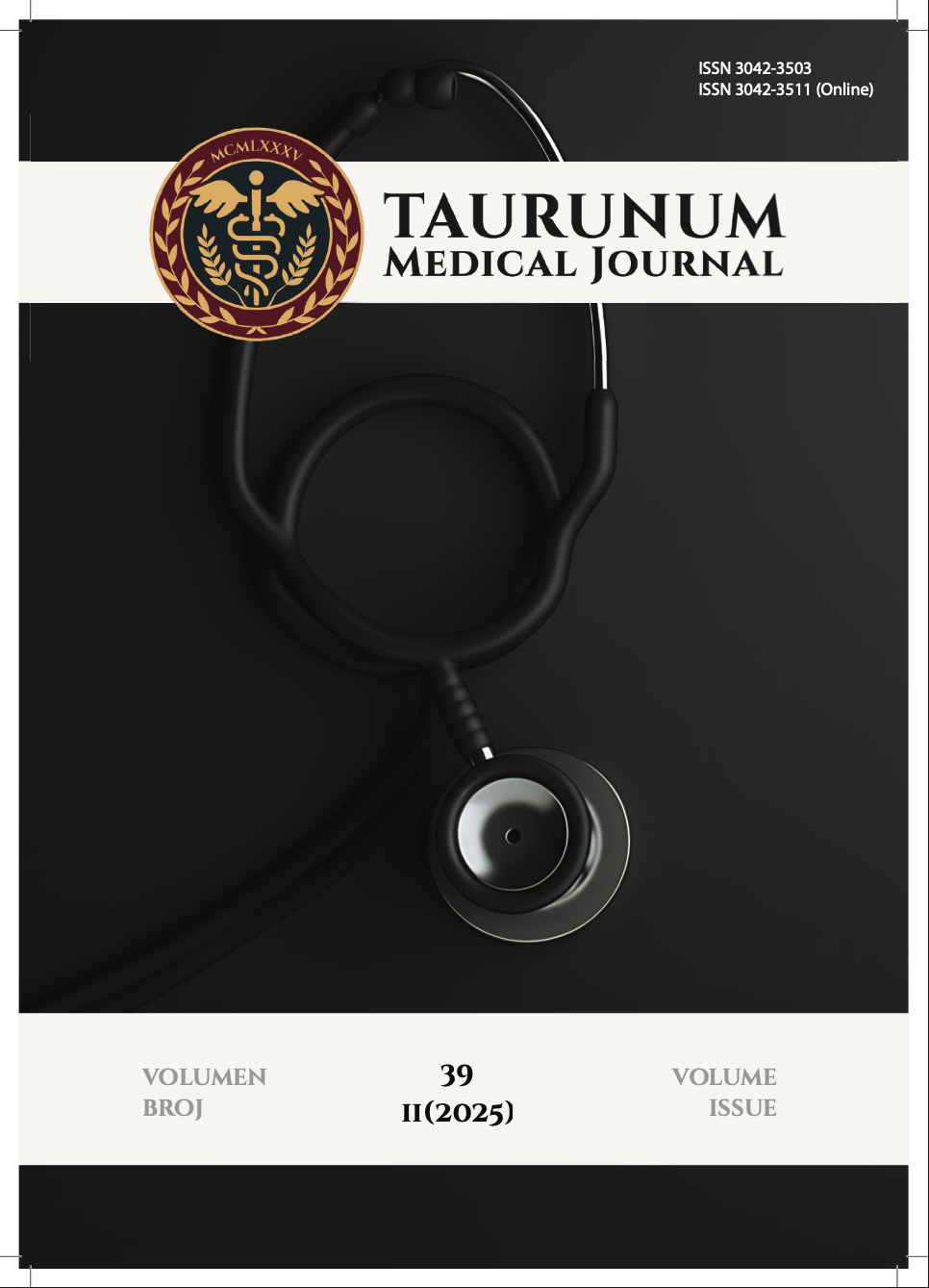
More articles from Volume 38, Issue 1, 2023
Prevalence and effect of respiratory syncytial virus infection on clinical course in children up to two years of age hospitalized for small airways infection
Examination of the impact and consequences of the COVID-19 pandemic on the mental health of the population in the Republic of Serbia in the population aged 30-50
Clinical and morphological characteristics of colorectal adenocarcinoma-ours experiences
Awareness of the necessity of screening as a health imperative
Damage to the health of employees due to occupational exposure to ionizing radiation
Article views
Citations

0
Examination of the impact and consequences of the COVID-19 pandemic on the mental health of the population in the Republic of Serbia in the population aged 30-50
Sanitary Medical School of Applied aciences “Visan” , Belgrade , Serbia
Sanitary Medical School of Applied aciences “Visan” , Belgrade , Serbia
Clinic for Psychiatric Diseases “Dr. Laza K. Lazarevic” , Belgrade , Serbia
Sanitary Medical School of Applied aciences “Visan” , Belgrade , Serbia
Published: 01.01.2023.
Volume 38, Issue 1 (2023)
pp. 2136-2149;
Abstract
The aim of the survey conducted at the Galen Farm Pharmacy in Belgrade is to analyze the impact of the COVID-19 infection on the mental health of the population aged 30-50. The end of 2019 marked the beginning of the COVID-19 (Coronavirus disease 2019) pandemic from China, which affected more than 214 countries and territories around the world. Preventive strategies play a major role in reducing the spread of the virus. The advent of vaccines slows down the transmission of the virus and alleviates the symptoms of the disease. The ongoing pandemic poses a serious threat to human health and the global economy and has resulted in enormous stress on health care systems worldwide, and mental and physical health are equally important components of overall health. 104 respondents, users of the services of the “Galen Farm” Pharmacy in Belgrade, were included in the research. An original questionnaire of 15 questions was created, and the research was anonymous. The DASS-21 scale (The Depression, Anxiety and Stress Scale-21 Items) was used in the research. For the largest number of respondents, the pandemic affected their quality of life, while a smaller number of respondents estimated that the pandemic had no effect. The largest number of respondents were positive for the virus, while twice as many respondents were not positive. More than half of the respondents were in mandatory isolation. The largest number of respondents reported that someone close to them was positive for the virus. The largest number of respondents had no the experience of the death of a close person. In order to gain insight into the impact of the COVID-19 infection on the mental health of the respondents, the answers of the respondents on the DASS-21 scale were processed in more detail. The respondents more often report experiencing stress symptoms during the past period. Medical workers have statistically significantly higher scores on average, on the individual scales of the DASS questionnaire, compared to non-medical workers, and this also applies to people who have had someone close to them die due to COVID-19. The obtained results are partially consistent with previous research. During the outbreak of any infectious disease, the psychological reactions of individuals play an important role in the spread of the disease, as well as in the frequency of emotional distress and social disturbances during and after the outbreak of a pandemic.
Citation
Copyright
This is an open access article distributed under the Creative Commons Attribution License which permits unrestricted use, distribution, and reproduction in any medium, provided the original work is properly cited.
Article metrics
The statements, opinions and data contained in the journal are solely those of the individual authors and contributors and not of the publisher and the editor(s). We stay neutral with regard to jurisdictional claims in published maps and institutional affiliations.




